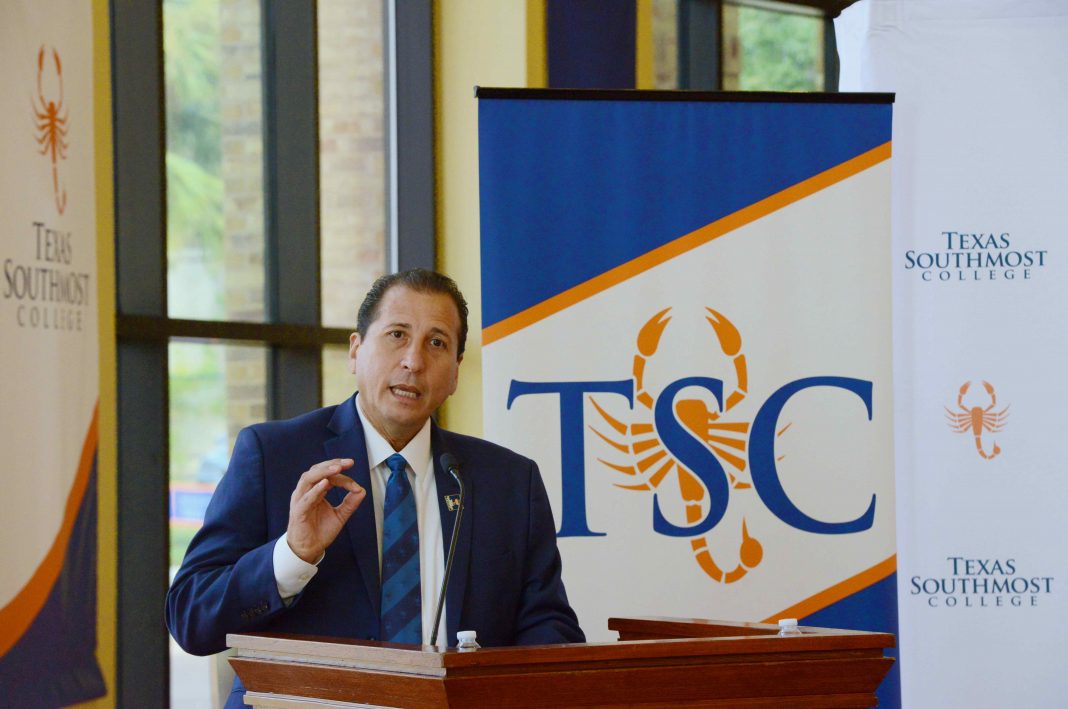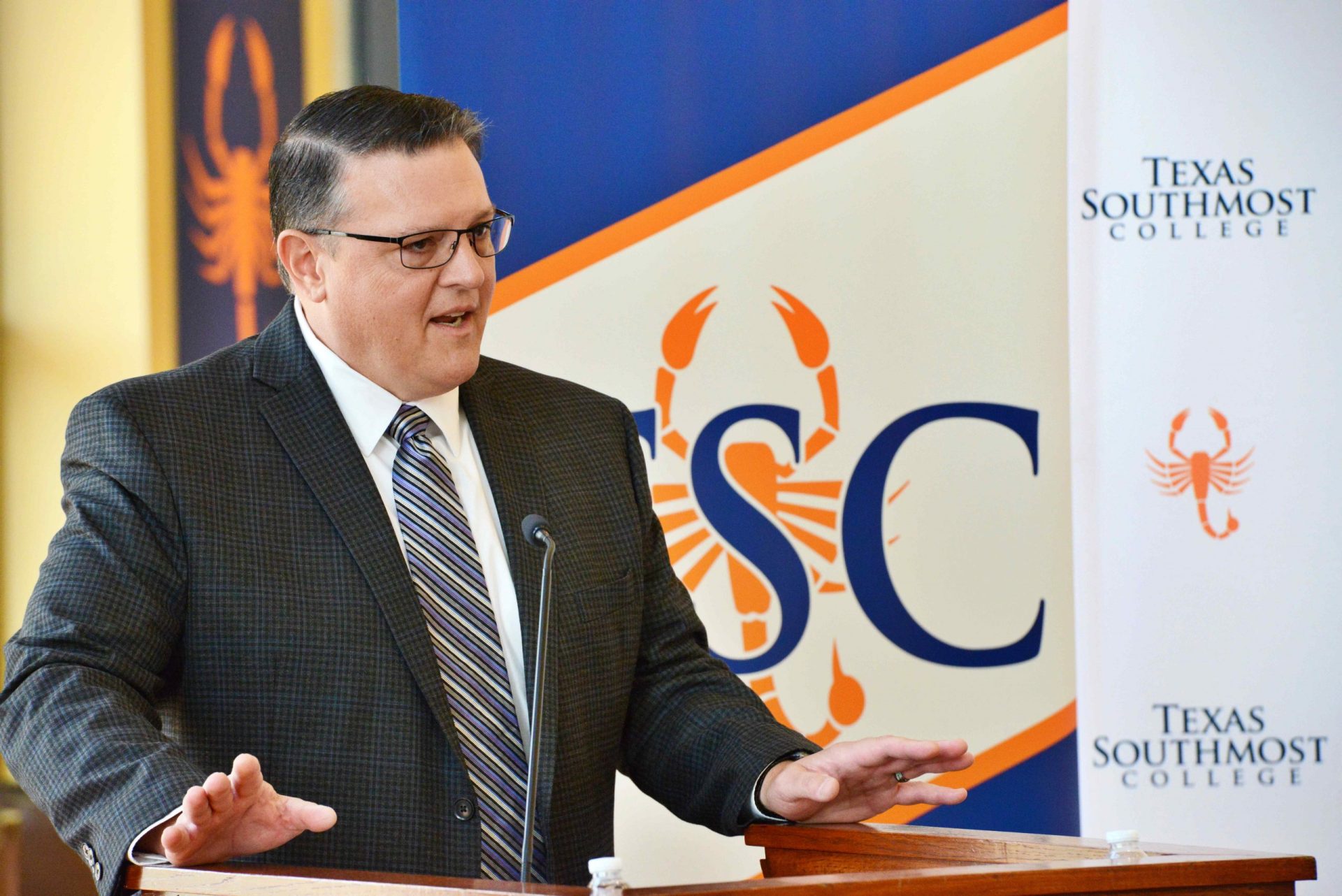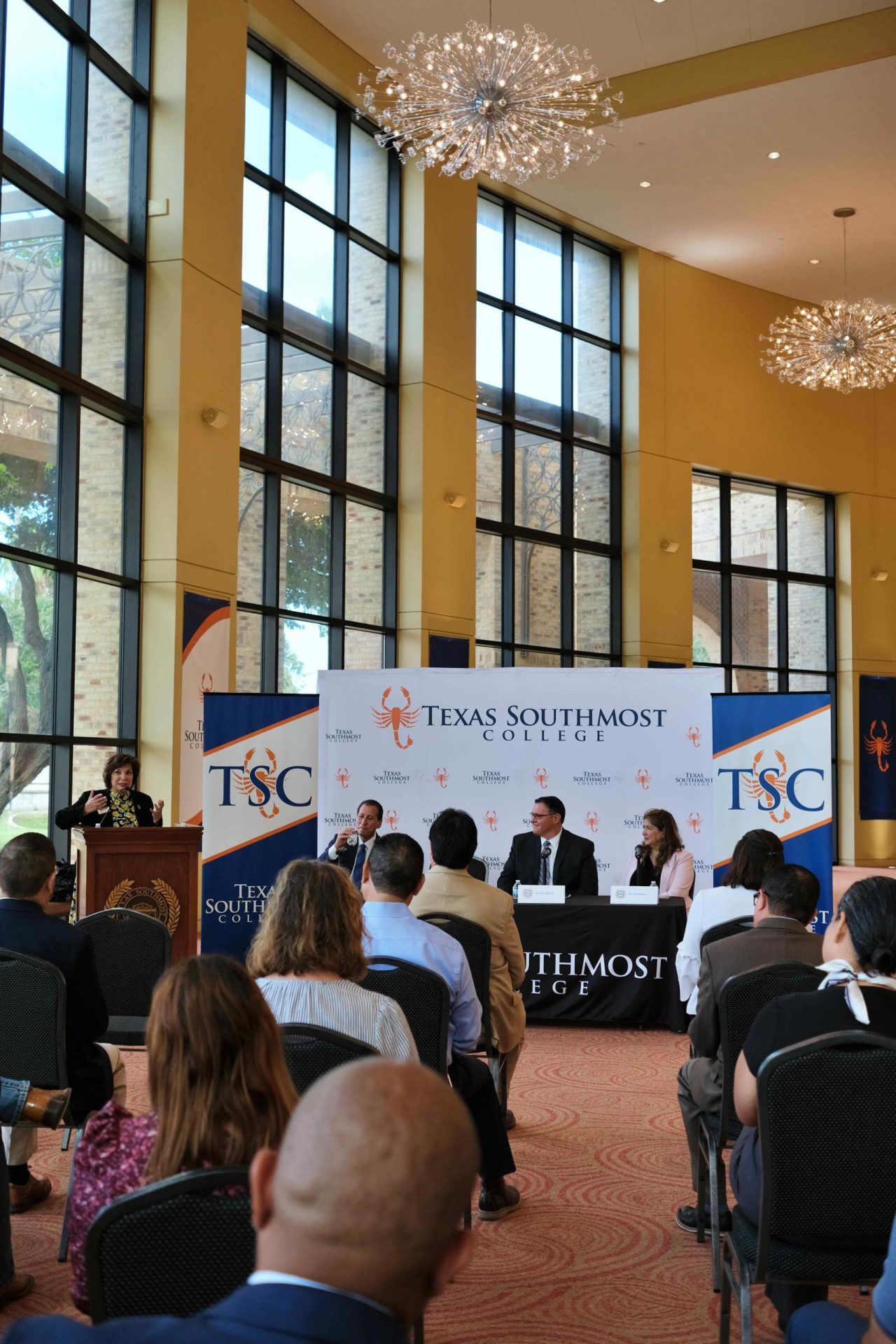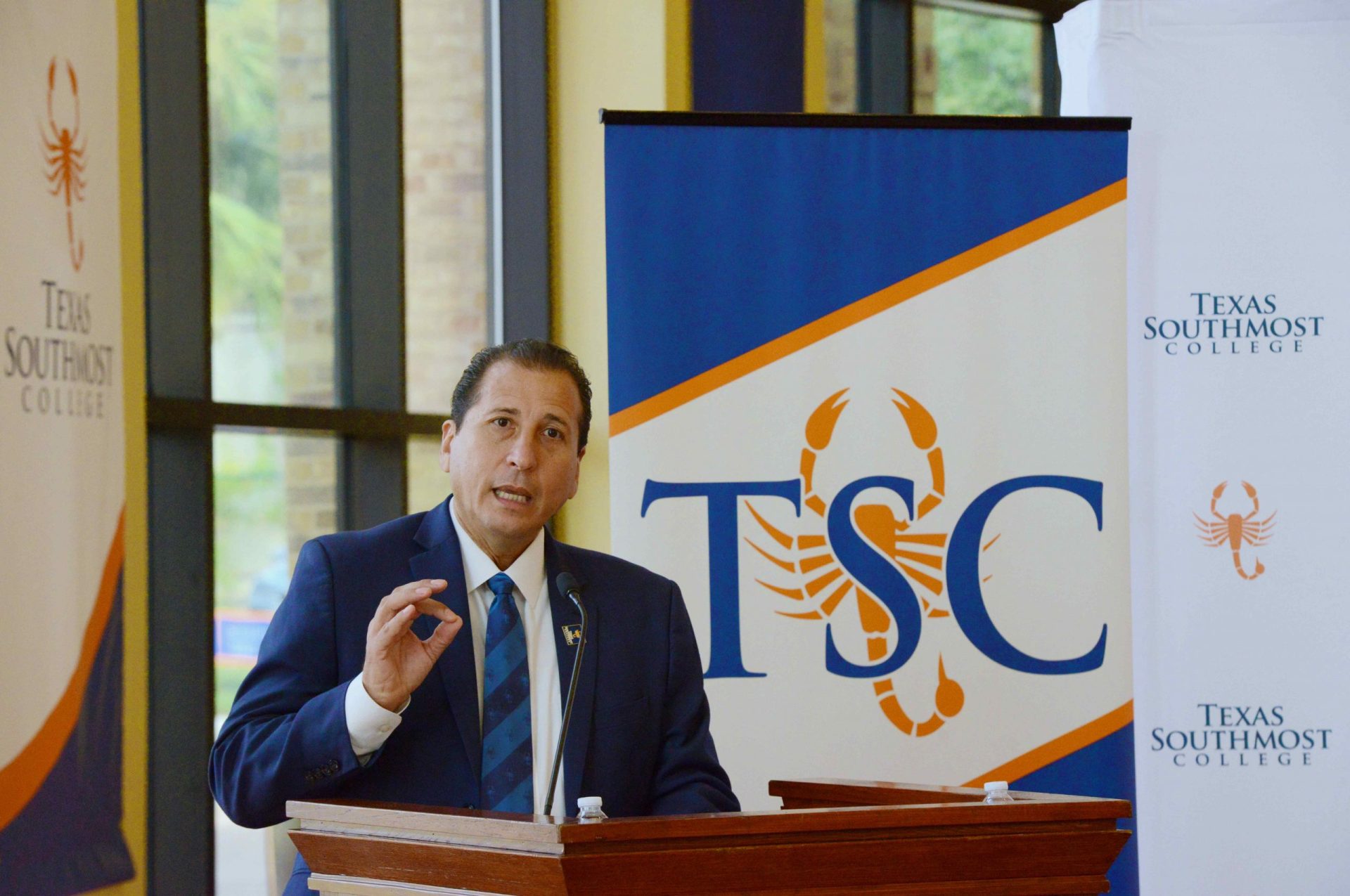Texas Southmost College held a press conference Wednesday to introduce two industry partners interesting in hiring graduates of TSC’s Workforce Training and Continuing Education division.
On hand from TSC were Joe Fleishman, WTCE associate vice president of instruction, Board of Trustees Chairman Adele Garza, and TSC President Jesus Roberto Rodriguez. Representing the industry side were Maribel Baca, branch manager for employment agency firm ResourceMFG, and Peter Dumont, chief innovation and digitalization officer for AG&P International.
“Our team has been working with AG&P and Resource MFG to address their employment and training needs,” Fleishman said. “You will hear soon that these businesses are hiring. They’ve asked us, Texas Southmost College, to be their training partner. They have also indicated that they will be here when our graduates complete these craft training programs, to offer them employment.”
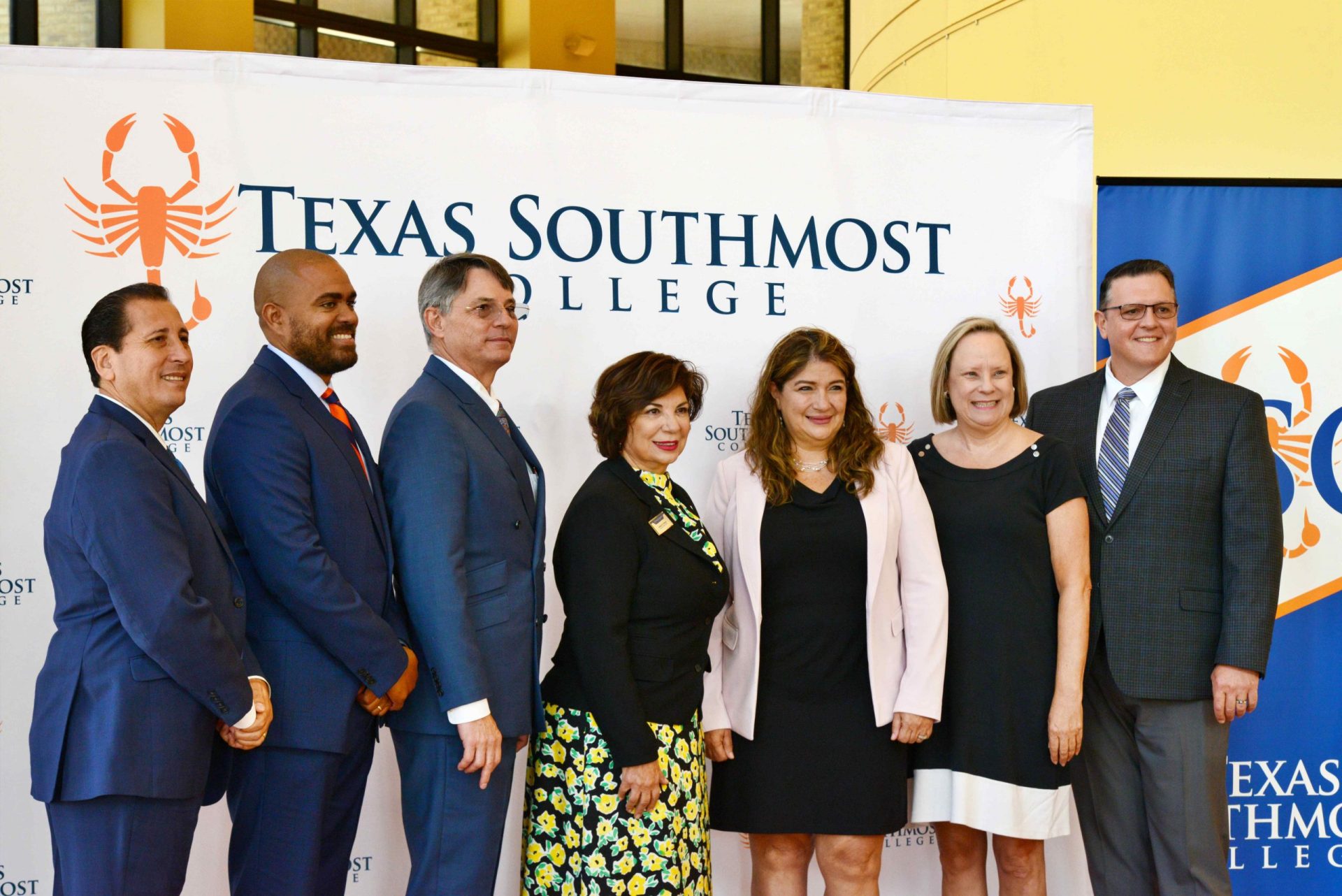
Rodriguez noted that TSC’s board has approved investing more than $23 million for the state-of-the art labs, active-learning classrooms and equipment and technology in order to provide this training, the curriculum in some cases custom made to meet employers’ specific workforce needs.
Dumont said AG&P, which stands for Atlantic, Gulf Coast and Pacific, is a 120-year-old, $1 billion-a-year company founded in the United States but headquartered in the Philippines, with an office in Houston. AG&P’s primary lines of business include regasification of liquefied natural gas for use in emerging markets like Africa and Southeast Asia, though in the Western Hemisphere the focus is on industrial construction, including along the Texas Gulf coast, Dumont said.
“What we’re doing, we’re growing a sustainable construction business here in the United States and … the Americas,” he said. “What does that mean for us and the college? Well, to do that we need to have a sustainable workforce.”
As with other sectors, the construction industry is dealing with a serious worker shortage, Dumont said.
“It’s forecast that we’re going to have a nationwide shortage of 2.7 million craftspeople by the year 2026,” he said. “There are several groups around the country working on how to solve that and have been for years. But none of them are really moving the needle substantially.”
Dumont said his company has seasoned workers but that many are approaching retiring age, while AG&P can only bring in so many Filipino workers.
“Now if we have an opportunity to get young, recently trained grads learning on the latest technology with leading instruction, that’s really interesting,” he said. “That gives us the ability to round out a very sustainable workforce over time.”
Dumont said he sees the company hiring tens of graduates per year from TSC, will aim to hire graduates from every graduating class, and will hire “hundreds over time, for sure.”
The jobs will be in fields of welding, pipe welding, mechanical and electrical, and will pay between $23 and as much as $40 an hour, depending on the region, he said. They will be in places like Alabama and Tennessee and possibly Georgia in addition to the Texas Gulf coast, Dumont said, adding that demand for workers in the Corpus Christi area, where AG&P has a contract with a major fabrication facility, is immense.
Baca said her company, formerly Select Staff, was recently acquired by Atlanta-based EmployBridge and now serves 50 states as opposed to just Texas. Workers hired from TSC’s workforce training programs — forklift drivers for instance — are sent in cohorts on three-month assignments in multiple states, though as many of 300 of its hires are currently working in Brownsville, she said.
The ones working out of state “come back and invest in Brownsville,” Baca said.
Rodriguez noted that even when the jobs are in, say, Michigan, there’s still a benefit locally.
“The family stays behind but that check, that salary, comes back to Brownsville,” he said. “There’s a lot of purchasing power that increases in Brownsville by getting these jobs, even when they’re not here in Brownsville.”

